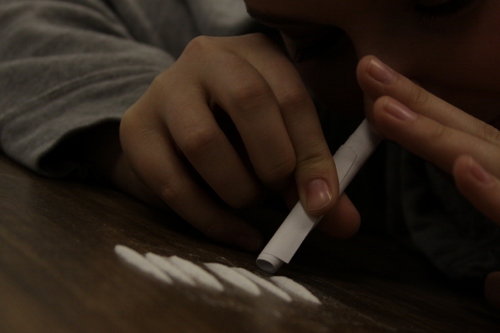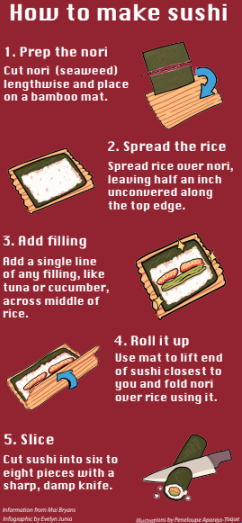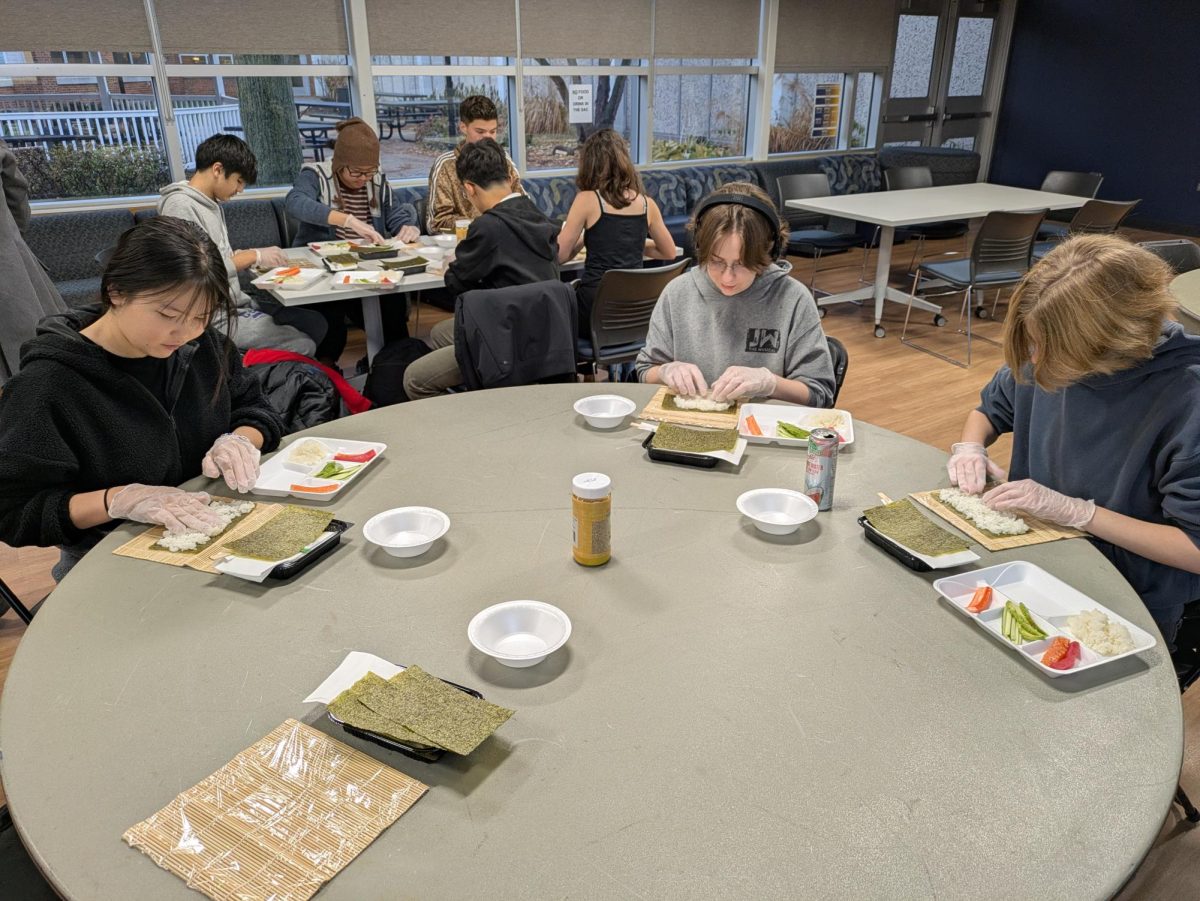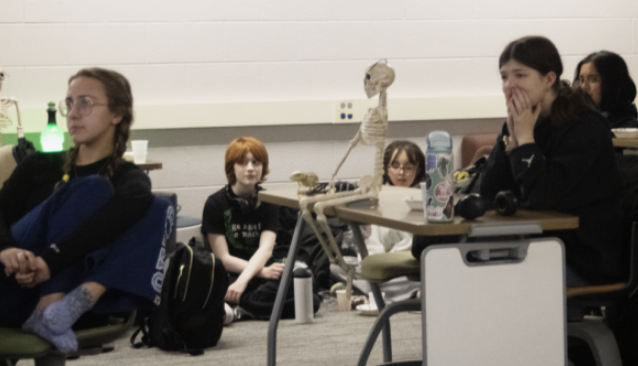Paula Nixon, former South student, is currently a heroin addict. Nixon lost four friends to heroin overdoses, including her boyfriend, in an 18-month period. All were South or North graduates, and all were teenagers when they died.
Nixon’s mother, PJ Newberg, an alcohol and drug counselor with a Masters in psychology and counseling, is determined to spread awareness about the fatal use of heroin among young suburban people. Newberg created a Facebook page called “Northshore’s Secret Heroin Problem” and a website and began presentations in an attempt to save lives.
“Heroin has kind of become an epidemic in our community, and it’s really not just our little North Shore area – it’s every county,” Newberg said. “It’s the whole Chicago metro area.”
According to Newberg, the majority of new heroin users are white suburban teenagers. According to a study by Roosevelt University’s Illinois Consortium on Drug Policy, there was a 442 percent increase in users under the age of 17 and a 393 percent increase in users 18 through 20 between 1997 and 2000. This study asserts that Chicago and its suburban counties are suffering the worst heroin problem in America.
“Dealers come up to this area because they know there is a lot of money, and some of the kids are tricked into trying it, thinking it’s cocaine or something else,” Nixon said.
Nixon began using heroin at 16 and used for seven weeks before Newberg found out and put her in a 28-day program in a drug treatment facility. On day 25, Nixon’s boyfriend Dayne Poyser overdosed on heroin and died.
“It was horrific,” Newberg said. “[Nixon] was devastated, of course, and she got out [of treatment], and she did all the right things for several weeks.”
According to Newberg, Nixon lost two other friends to heroin overdoses and relapsed herself after getting out of treatment. When this occurred, Newberg knew she needed to take action.
“I thought if I could just get the word out, that’s my goal […] to spread the news because all the research says there’s not a lot of education,” Newberg said.
Many are unaware of how physically addicting heroin is, says Newberg.
According to a study by Roosevelt University, many heroin users develop a dependence on opiate pills prior to using heroin. Heroin serves as a replacement when the pills become difficult to obtain. Opiate pills include prescription medications such as Oxycontin and Vicodin.
According to Newberg, heroin is readily available on the North Shore and is extremely cheap.
“You also do not have to inject [heroin],” Newberg said. “You can just snort it. I think sometimes kids are at a party and some kids might not know what they’re doing, and it’s really heroin.”
Further, withdrawal from heroin is “horrible”, says Newberg. Symptoms include nausea, chills, vomiting, shaking and muscle cramps.
“It’s so physically addicting that you get to the point where you have to have the drug, and then it just leads down a bad path,” Newberg said.
Newberg believes heroin use is often accompanied by gangs, prostitution and crime. Nixon is currently in jail for issues related to her heroin use and completely regrets having used heroin, describing her experience as a “nightmare.”
“Heroin is completely in a different league than other drugs,” Nixon said. “The high is not worth the consequences […] Once you start doing the drug more frequently, you don’t really live. It takes your life.”
Newberg has seen heroin take Nixon’s “heart and soul” and hopes that other parents won’t have to live in fear for their children’s lives.
“[Nixon] was a wonderful kid, and this has basically changed, altered and affected her entire life, her family, her education, her future,” Newberg said.
Newberg led presentations alongside a researcher, police chiefs and recovering heroin addicts at both the Glenview and Northbrook Public Libraries on Aug. 14 and Nov. 12, respectively. She is hoping to expand her reach by presenting in other suburbs next year.
“[At my presentations] I share my story from a parent’s perspective, and I bring in a recovering heroin addict to show that you can change, and there is a lot of help available, but it is difficult,” Newberg said.
Heroin is a vital topic to address, according to Newberg, and one around which there is much stigma. For more information, visit www.








